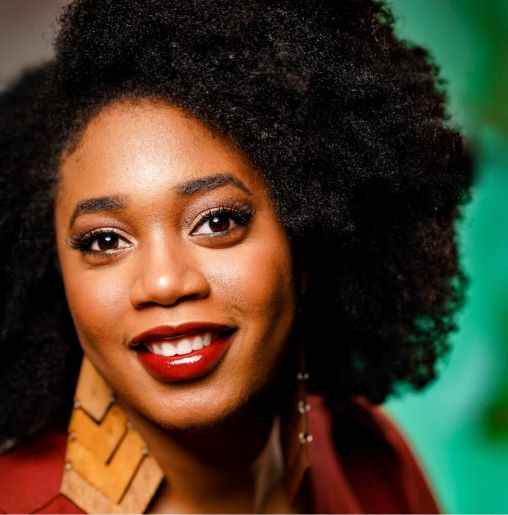Q&A with Rebekah Williams, co-founder of the Miscast Theater Company
By JASMINA WELLINGHOFF, Editor
Tell me how and why the Miscast Theater Company was formed?
We had a group of friends that met about seven years ago just doing shows around San Antonio, and we talked about how, if we had a theater company, we would do things differently, including more color-conscious casting and casting people who don’t get many opportunities. Since we were people of color, we mostly did ensemble work (in shows), mostly because there weren’t many plays that feature leads who are people of color. Over the course of those seven years, we had multiple conversations about that. Then Claudia De Vasco showed up as the new executive/artistic director at the Public, and she brought up in a conversation one day, how she would like to have these guest resident companies at the Public as cohorts. Teatro Audas was the first. That was in Feb. 2021. A couple of months later, she let us know that the application process was open. “Get your paperwork together!” (She said) So, the three of us, Alejandro, Ivan and I put a business plan together based on our vision as I told you earlier – creating a space for performers who are traditionally overlooked.

When you refer to marginalized actors, are you referring primarily to Black performers?
Black, Hispanic, Latino, any performer of color. It’s very rare to see a show with a person of color in a lead role more than once a year or so. But it’s also performers of different sizes, different abilities…
Are you familiar with the Mixed Blood Theater in Minneapolis? Their approach is entirely color-blind casting but they still cast according to ability.
Casting people of color in roles that were not traditionally open to them, only goes so far.
If I understand you correctly, you want theater companies to put in an effort to cast these marginalized performers and work with them, help them develop as actors, almost like an educational institution?
Well, yes! And we prefer the term “color conscious” to “color-blind.” Just saying Cinderella can be any color because there’s nothing that says that she must be white – although she’s traditionally depicted as white – opens the door to casting her as black, for instance. So that’s one step in the right direction. Also, traditionally, “Little Women” is about girls and their mother. Normally, they are cast as actresses who look alike, as an all-white family. There’s nothing in the script that says that that must be the case. How about casting the five daughters as people of different races – one Asian sister, one black, one white… You are then getting to a deeper meaning. We can cast different races and they can still play sisters. There’s nothing wrong with that. Changing traditions, it’s what we are all about. We have families of mixed race in real life, in our city. It’s not confusing. We can decide to open our mind to something different from what we have been seeing in the past. We are asking people to be willing to look at something different.
Have you ever experienced being marginalized or rejected for a role you auditioned for?
That has happened more than once. I auditioned for productions of “Cinderella” and had directors tell me how much they loved the Brandy version of the story, and then proceeded not to cast any of the black females who auditioned. In college, I was on a theater scholarship; they wanted me in their school, but I was also the only black person there. I did not get the roles in the famous plays, like Shakespeare or “The Importance of Being Ernest,” and others like that.
Are you basically saying that people are so used to seeing things in a certain way, that they can’t get out of that mental framework?
Yes.
Tell us about the show your company just performed, “The Cast That Goes Wrong,” a cabaret show, right?
It was done in the style of Broadway Backwards, with females singing songs that would normally be performed by men and vice versa.
Were you in the show?
I wasn’t but my mother, Neryl Williams, was. Both she and I are on the Board of the Alamo Theater Arts Council (known as ATAC) The cast was a mix of performers people have seen on San Antonio stages and know well, and some new people.
How long will your company be in residence at the Public Theater?
We’ll be there for two years. It’s a great opportunity they are giving us to kind of launch ourselves safely instead of having to find a building, get all the technical equipment, and all of that. We can focus on doing the plays and selling tickets. They are doing us a big favor.
So, what’s next for the Miscast Company?
I can’t give you a title but in September we plan to do a musical, a published musical.
